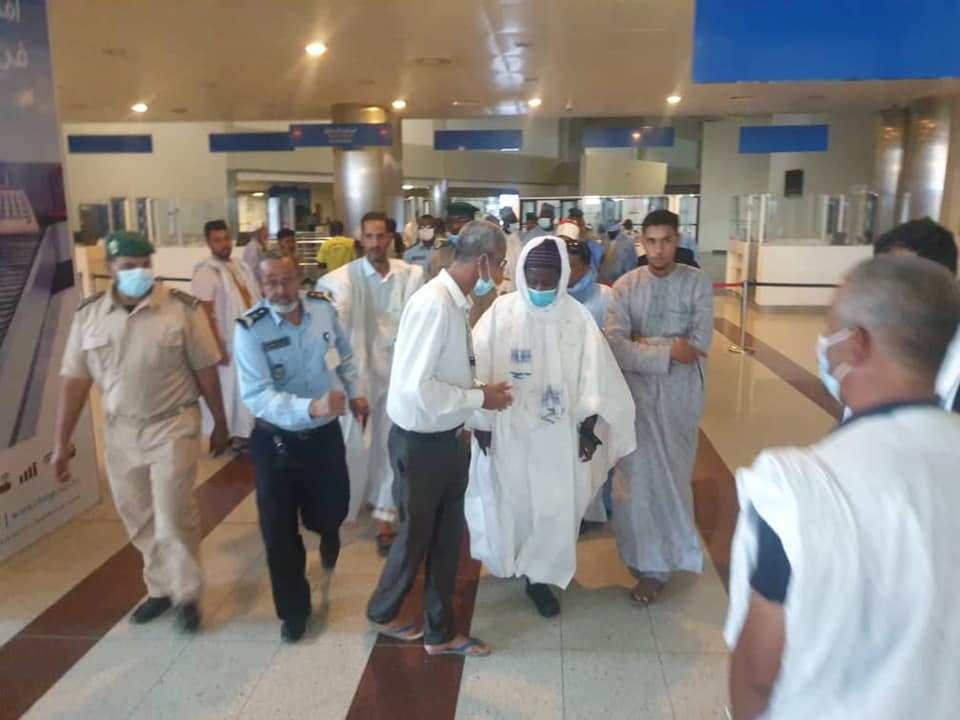
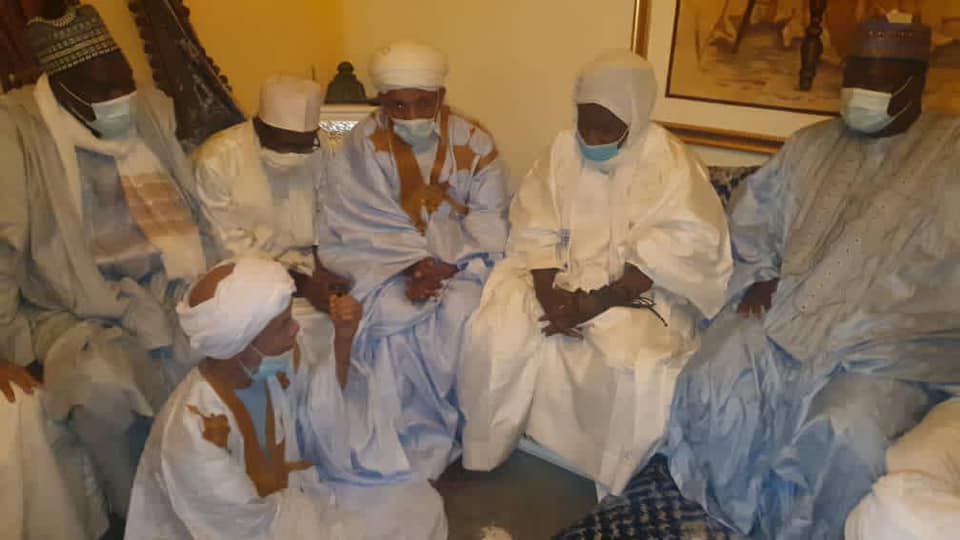
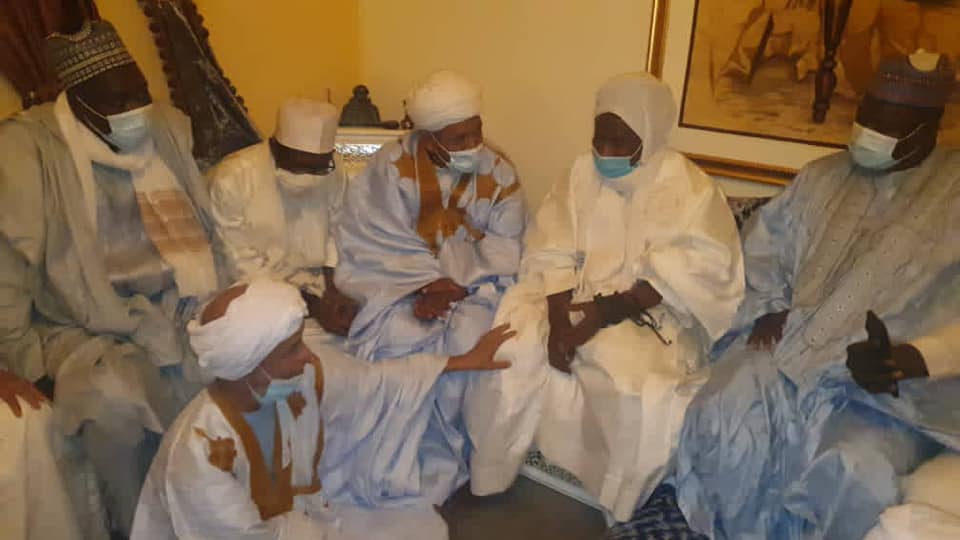
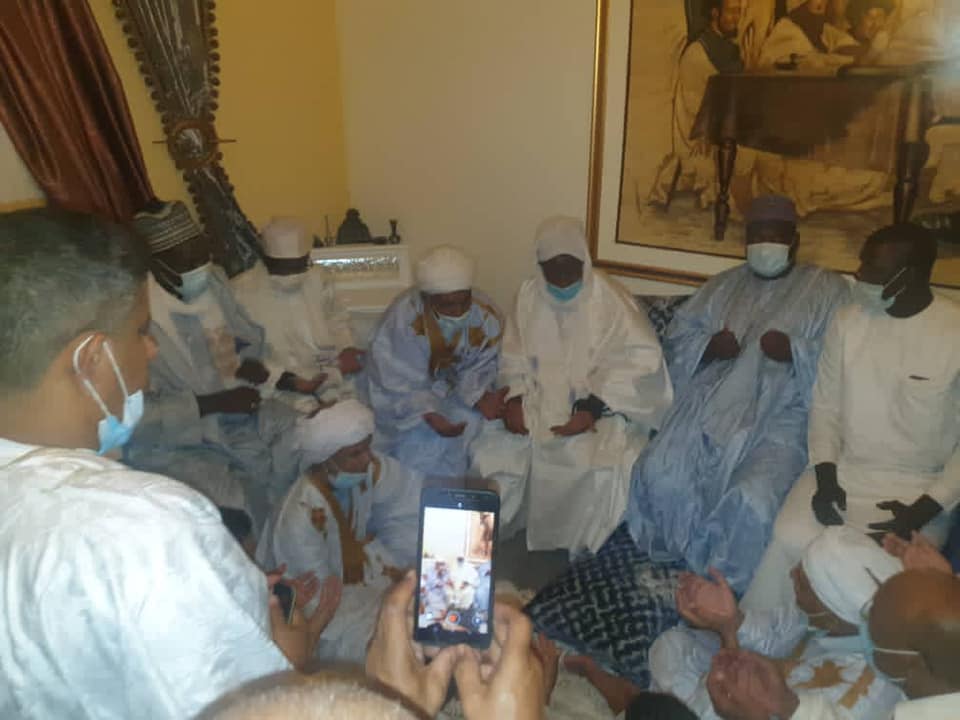
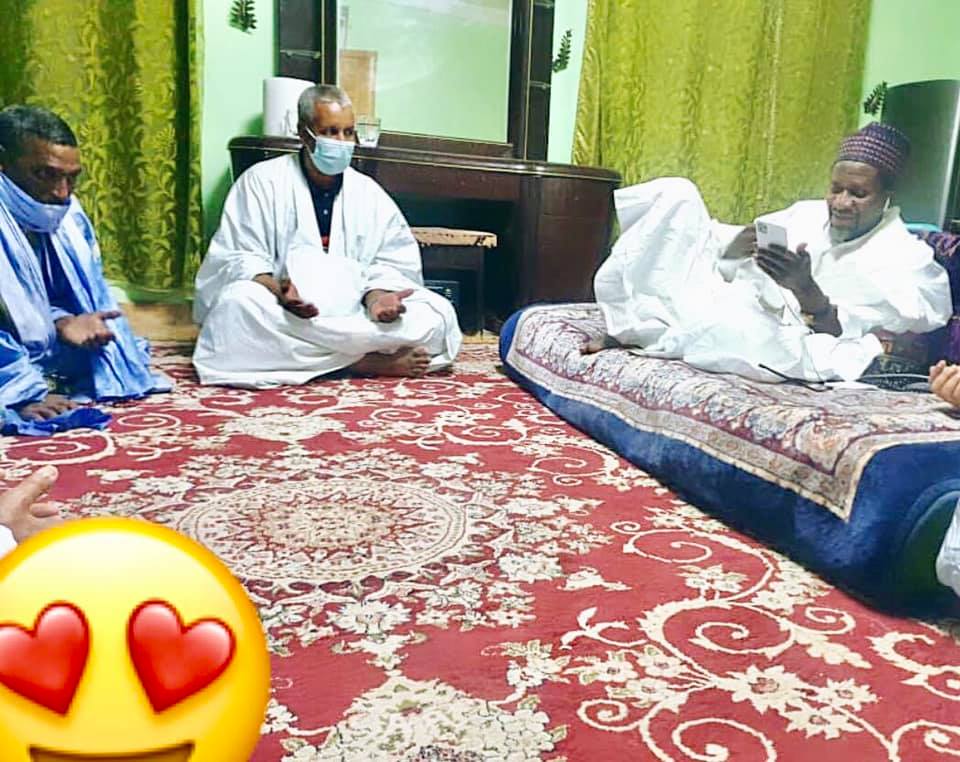
Maulud at the University of Niamey in Niger Republic.
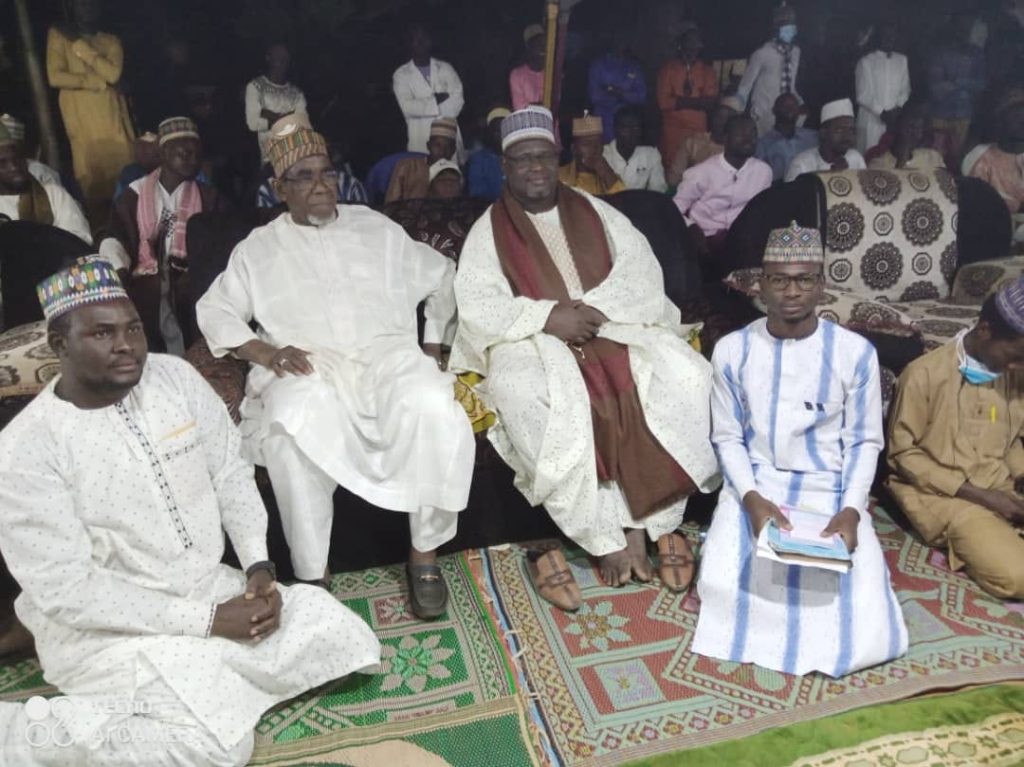
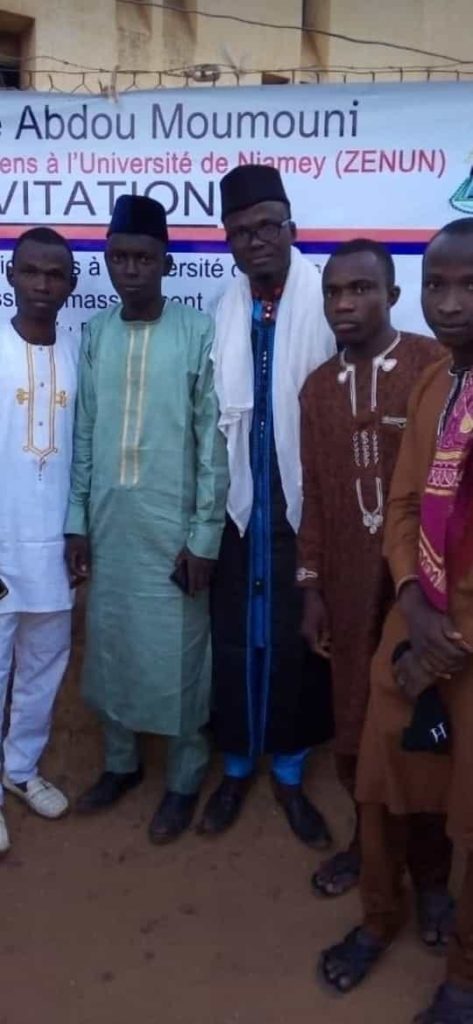

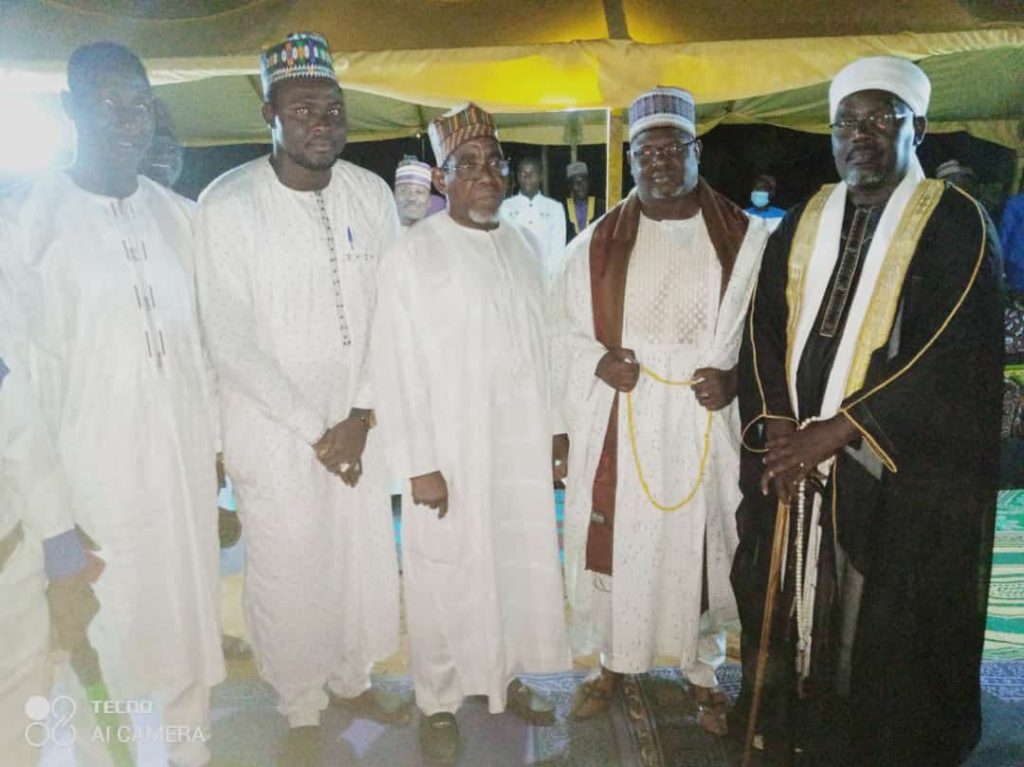
Islam the Religion of Peace

Introduction
….Cheikh Tidiane’s collection of scholarly licenses
(majmû’ îjâzât) thus includes comprehensive authorizations
in the Islamic sciences of Qur’ân recitation (tajwîd) and exegis
(tafsîr), Prophetic traditions (hadith), jurisprudence (fiqh) and
its principles (usûl), theology (‘aqîda), and literature (adab).
The chains of transmission in this collection pass through
Shaykh Ibrâhîm to some of the most prominent Islamic
scholars around the world in the twentieth century. These
scholars, by whom Shaykh Ibrâhîm was invested personally,
include: ‘Abd al-Hayy al-Kattânî (Morocco), Muhammad alHafiz al-Tijânî (Egypt), Ahmad Sukayrij (Morocco), Sâlih b. alFudayl (Tunisia, Saudi Arabia), ‘Abd-Allâh b. al-Tayyib alAzharî (Egypt), Muhammad al-Amîn al-Alawî (Mauritania),
and his own father, ‘Abd-Allâh b. Muhammad Niasse
(Senegal). The authorizations in Sufism (tasawwuf)
transmitted to Cheikh Tidiane through Shaykh Ibrâhîm are
similarly comprehensive.
After completing his early education in Senegal, he
traveled to Egypt where he lived with Shaykh Hasan Cisse
during his elder brother’s last year of study in Cairo. Like his
brother, Shaykh Tijani excelled in his formal studies in Egypt;
the result, he says, of the rigor of the
informal instruction given him in Senegal. He graduated first
in his class in the Azhar preparatory school, receiving his
diploma in Arabic language in 1974. He received his
Baccalaureate in 1977 in Arabic Language, graduating fourth
in his class. By 1981, he had distinguished himself at the
University of Azhar with a degree in the faculty of Usûl al-Dîn
(Theology), specializing in Hadîth (Prophetic Traditions).
After finishing his studies in Egypt, he traveled
extensively throughout Africa, the Middle East and America
attending conferences, participating in religious debates, and
calling people to Islam. He took time to edit and publish
several important works, including Shaykh Ibrahim’s Kâshif alilbâs and a collection of Shaykh Ibrahim’s writings, which he
named Sa ‘âdat al-anâm. He also aided the publication of a
comprehensive collection of Shaykh Ibrahim’s supplications,
Kanz al-Masûn. Most recently, he has edited and published
the most important work of the Tijâniyya, the Jawâhir al-ma
‘ânî, based on the original manuscript of ‘Alî Harâzim alBarâda currently in Cheikh Tidiane’s possession. Such
invaluable work has not gone unnoticed. One Azhar scholar
reportedly told him that his work identifying hadith citations
in the 2001 publication of Kâshif al-ilbâs would have been
enough to earn him a doctoral degree at Azhar University. In
the introduction to Cheikh Tidiane’s reprinting of the Kâshif,
Shaykh Hasan Cisse wrote: “I thank my dear brother, the
master, the Shaykh, Tijânî ‘Alî Cisse, who spent of his efforts
for the success of this pious work and much appreciated
endeavor.”
The high scholarship and humanitarian mission of
Cheikh Tidiane Cisse have been recognized by several
government and international bodies. The Senegalese
government appointed him as Senegal’s General
Commissioner for the Hajj in 2001. In 2006, he was again
recognized by Senegalese President Abdoulaye Wade and
appointed a Senegalese “Special Missions Ambassador”, a
position he holds until the present time. He has also received
Senegal’s distinguished award, the Ordre de Merite (1993). A
2011 report issued by Jordan’s Royal Islamic Strategic Studies
Centre and Georgetown University’s Centre for MuslimChristian Understanding ranks Cheikh Tidiane twenty-sixth
among the world’s 500 most influential Muslim personalities.
His most recent trip to Atlanta, Georgia (January 2011),
earned him the city’s prestigious Phoenix Award.
The three texts comprising this book were speeches
delivered at international Islamic conferences in January 2011
(Atlanta, Georgia, USA), and March 2009 (Timbuktu, Mali).
The Atlanta conference entitled “Eradicating Islamophobia,
Islam: The Religion of Peace and Help for Humanity,” was
hosted by the Islamic World International Conference, based
in Atlanta. The Mali conference, “The Timbuktu Summit:
Gathered for Change,” was sponsored by the radical Middle
Way of the United Kingdom. Both gatherings shared the aim
of staging world-renowned Muslim scholars who could speak
authoritatively on the tolerant and merciful nature of the
Islamic religion. Cheikh Tidiane Cisse was an honored guest at
both conferences, and his scholarly contributions, included
here in this volume, were keynote addresses in both
instances. Cheikh Tidiane’s lectures speak directly to the
challenge of establishing the scholarly foundation on which
Islam can be recognized worldwide as a fundamental source
for tolerance and mutual understanding for all of humanity.
Significantly, these speeches ultimately returned the
audience to the person of the Prophet Muhammad (PBUH)
presented as the sublime personification of human
perfection. The Cheikh’s salient message is that the
emulation of the Prophet is the source of all exaltation and
happiness for the human race, and that abandoning his
example is the source of all degradation and misery. The
speeches included in this volume remind us of the essential
role authentic Muslim scholars have to play in articulating the
universal and timeless Islamic ideal.
….shall continue in sha Allah
You can participate publishing this newsletter by supporting it financially; one way is to cashapp: $Bachirzak
Thank you for your support. Please also visit the Nasrul Ilm world page on Facebook, to like and recommend it. Thanks.